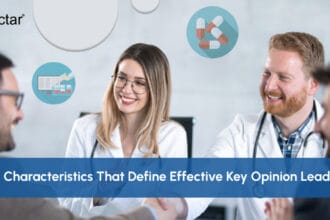Nutrigenomics is a young science and built around the revolution in genomics. As such, the science is still evolving. The excitement about nutrigenomics comes from a growing awareness of the potential for modifications of food or diet to support health and reduce the risk of obesity and many deadly chronic diseases.
Nutrigenomics will become a critical part of the entire “personalized medicine” concept that is revolutionizing medical practice as discussed in detail in The Future of Medicine – Megatrends in Healthcare. Personalized (or “custom tailored”) nutrigenomics medicine is an approach that means it is possible to have a direct impact on long term health and longevity by very specific dietary manipulations. Nutrition will no longer be “one size fits all.”
Nutrigenomics offers hope to those who know they have a strong family history of heart disease, cancer, diabetes, obesity, and most likely many other diseases as well. At the same time it takes away the excuse of “everyone in my family is overweight so I am too.” One no longer needs to be fatalistic in this regard and hope may lie at the end of a fork.
Nutrigenomics is not a phenomenon, a fad, or a technique to use in a vacuum. It is best as part of a total approach to lifestyle management.
It is increasingly apparent that various foods directly affect critical genes – turning them off or on as the case may be – and thereby directly impacting the development of atherosclerosis, diabetes, many cancers and obesity, among others. The foods that we consume play a role in how genes that affect our health are expressed, or “turned on” and “turned off”.
For example, we know that broccoli is good for us because it is one of the most nutrient dense foods that we can consume. One of the reasons that consuming broccoli may enhance our health is that many of the nutrients in broccoli have been shown to turn on genes that protect from disease and turn off genes that increase the risk of disease. For example, a nutrient in broccoli called sulforaphane has been shown to turn off genes that cause many forms of cancer. The omega-3 fatty acids found in salmon, grass-fed beef, walnuts, flax seeds, and fish oils appear to turn on genes that protect against heart disease and its risk factors. These are just a few examples of how eating a nutrient dense diet can improve health by turning on genes that protect from disease and turning off genes that cause disease.
It is important to realize that processing foods removes or destroys phytonutrients. Hence, processed foods contain less or no phytonutrients, and this lack of phytonutrients along with chemicals that directly affect our cells’ genes explains, in part, why overconsumption of processed and ultraprocessed foods contributes to chronic disease.
See the Future of Medicine – Megatrends in Healthcare for a fuller discussion of the implications of genomics. And watch for new developments in this fast moving new science.
Remember, nutrigenomics has made it clear that your genes need not be your fate! Just because you have a family history of a certain disease does not mean that you are also destined to become a victim.






